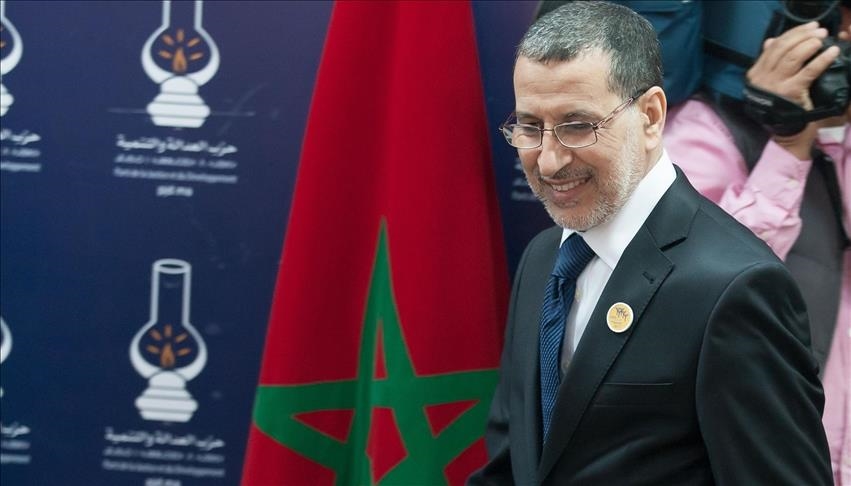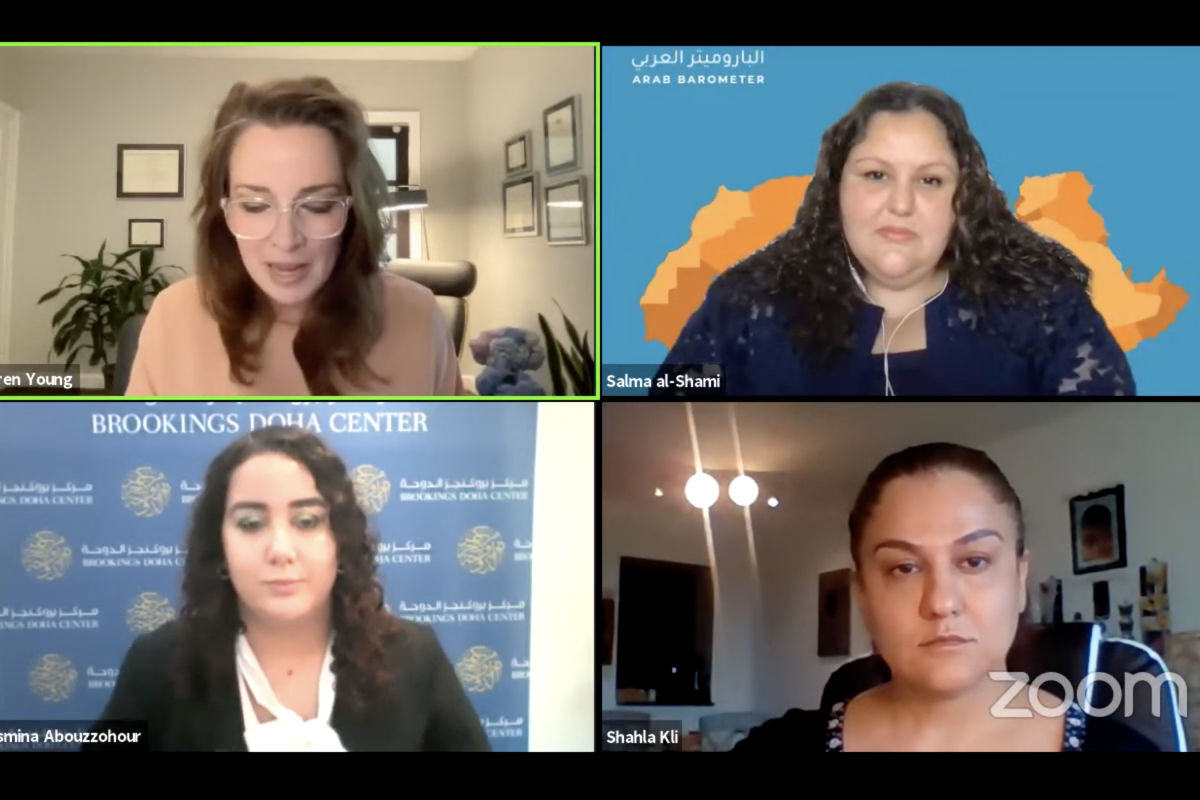Many countries across the Middle East and North Africa, or MENA, region have faced critical challenges in ensuring the effective and equitable vaccination of their citizens against COVID-19. With a few exceptions, like Morocco, Israel and several Gulf states, countries in the region have faced difficulties in securing sufficient doses due to logistical constraints, poor planning and vaccine hesitancy.
This article was originally published by World Politics Review
By Paul Dyer, Yasmina Abouzzohour
Many countries across the Middle East and North Africa, or MENA, region have faced critical challenges in ensuring the effective and equitable vaccination of their citizens against COVID-19. With a few exceptions, like Morocco, Israel and several Gulf states, countries in the region have faced difficulties in securing sufficient doses due to logistical constraints, poor planning and vaccine hesitancy. As of mid-August, only 21 percent of the region’s population had received at least one dose, and less than 13 percent were fully vaccinated. This puts the region far behind the developing country average of 36 percent with at least one dose and 22 percent fully vaccinated. Moreover, while some countries have accelerated their vaccination campaigns under the pressure of recent COVID-19 surges, other campaigns seem to be slowing or stalling. As countries brace for new waves of the pandemic, MENA governments—and their international supporters—must find ways to address the root causes of their halting vaccination campaigns.
Reflecting global trends, wealthier MENA countries have been highly successful in their inoculation campaigns. The United Arab Emirates, in fact, leads the world, with 85 percent of its population having received at least one dose of the vaccine. The UAE’s neighbors in the Gulf have logged similar results, with at least 62 percent of their populations receiving at least one dose of the vaccine; Oman is an exception, at 48 percent. Several middle-income countries in the MENA region are also carrying out successful vaccination campaigns. Particularly noteworthy is Morocco, which has vaccinated 49 percent of its population with at least one dose. Jordan has provided 34 percent of its population with at least one dose, and Tunisia, which had been facing a dangerous health crisis, has done the same for 35 percent.
In contrast, most low- and middle-income countries in the region have made little progress in inoculating their populations. Nearly 20 percent of people in Lebanon have received at least one dose. Similarly, Iran, which has recently accelerated vaccine distribution, has managed to reach only 21 percent. Libya and Algeria are faring poorly, at 14 percent and 7.7 percent, respectively. Egypt, the region’s most populous country, has provided only 5 percent of its population with at least one dose, while Iraq has managed just over 2 percent. In conflict-stricken Syria and Yemen, around 1 percent of the population has received any vaccination for COVID-19.
In large part, the region’s struggles have been driven by the restricted ability of most governments to secure sufficient doses of available vaccines. Like most OECD countries, wealthier Gulf states were able to purchase large numbers of vaccines in advance, while lower-income countries have depended largely on COVAX, the international joint effort to develop and distribute the vaccine more widely, as well as on donations from wealthier countries. However, COVAX has not been able to keep up with demand and has faced logistical constraints in delivering vaccine allotments. As of June, COVAX was 200 million doses behind schedule. For example, Iraq was allocated 1.725 million doses through COVAX but it has only received two shipments: an initial allotment of 336,000 in late March and a second shipment of 499,000 in mid-May. Iraq also received over 1.2 million donated vaccines from the United States, China and others, for a country of 40 million people. Similarly, under COVAX, Iran was allocated 3.6 million doses, receiving just over 700,000 doses in early April and just under 1.5 million doses in mid-May, although Iran’s relationship with COVAX and its wider ability to secure vaccines on the international market have been affected by existing financial sanctions imposed by the United States.
The lack of urgency in planning and launching vaccination campaigns also reflects longstanding challenges in terms of governance and effective public service delivery.
Some MENA countries have also faced difficulties carrying out efficient vaccination rollouts, especially outside of major cities. For example, Egypt’s rollout was poorly timed, as it opened registration for the general public just a week after it had been opened for vulnerable people, resulting in long lines and wait times. Also, health authorities across the region have relied on telephone hotlines and online applications to register people to get vaccinated, meaning those without internet or phone access have struggled to secure vaccination appointments.
The challenges of vaccine distribution have been the most difficult in war-torn countries like Syria and Yemen, where health care infrastructure has been decimated and governments remain wary of providing medical assistance to opposition-controlled areas.
Slow vaccine rollouts are due in part to the relatively low incidence of confirmed COVID-19 cases during early phases of the pandemic, which led many states to underestimate the virus’s threat. However, the lack of urgency in planning and launching vaccination campaigns in low- and middle-income countries also reflects longstanding challenges in terms of governance and effective public service delivery.
The bigger long-term challenge facing the region may be vaccine hesitancy. An online survey conducted in January found that nearly 42 percent of respondents claimed that they would not take the COVID-19 vaccine under any circumstances, while an additional 21 percent were unsure. A more recent assessment shows alarming rates of people across the region who say they would refuse to get the vaccine, including 63 percent in Tunisia, 62 percent in Iraq, 53 percent in Algeria, 51 percent in Jordan, 30 percent in Lebanon and 27 percent in Libya. In some cases, like Iraq, the high level of vaccine hesitancy may have led to available doses going to waste. However, even in countries where initial vaccine take-up has been high, continuing hesitancy among large shares of the population undermines the region’s long-term chances of reaching herd immunity.
Vaccine hesitancy in the Middle East can be attributed in part to the newness of the vaccines and the rapidity of their development. However, in a region where public trust in government—as well as in foreign powers and international institutions—is extremely low, the public also often turns to al-mu’amara, or “the conspiracy,” to explain crises. In a recent survey of Jordanians, 40 percent of respondents believed COVID-19 to be manufactured to enforce vaccination, and nearly 28 percent believed the vaccine is a way to plant microchips in people. Importantly, in the context of the pandemic, the internet has ensured that people across the region—like the global community more broadly—are receiving heavy doses of misinformation about the virus and the vaccine, hindering health authorities’ vaccination drives.
MENA countries are not alone in facing vaccine supply constraints and logistical challenges, or in facing significant vaccine hesitancy. However, as health authorities move forward with vaccine distribution, it is the latter—vaccine hesitancy—that may become the greatest challenge they face in their efforts to protect the wider population from COVID-19. There are no easy solutions, but efforts to tackle this problem must begin with clear, transparent communication from government authorities about the state of the disease in the country, the threat it poses in terms of illness and death, and how to get vaccinated. While governments in the region did well with transparency during the early stages of the pandemic, they have largely retreated from this responsibility as they deal with successive waves of the virus and the growing economic costs of their pandemic responses.
Health authorities should also work with closely with local leaders and communities, where vaccine fears can play into sectarian rivalries, ethnic differences and political contestation. Pro-vaccine messaging employing celebrities and other influencers can be helpful at early stages of a rollout but have proven less effective at other times, so this should not be used as a central strategy. A more successful strategy could be to engage religious leaders and opposition figures in a collaborative campaign to encourage, rather than politicize, vaccination.
In the longer run, however, the most effective approach to combating vaccine hesitancy seems to be working with local community leaders and nongovernmental organizations to ensure that the public has access to clear messaging about the importance of vaccination from medical professionals and other trusted sources. Here, key partners and organizations at the international level can provide technical and financial assistance, although any messaging directly from them will likely prove counterproductive. In the meantime, for some, the fear of vaccination may only be overcome by fear of a more pronounced outbreak or more dangerous variants, both of which now seem imminent.
Editor’s note: The data for vaccination rates cited in this article are current as of Aug. 30.
Paul Dyer is a policy analyst with Brookings Doha Center.
Yasmina Abouzzohour is a visiting fellow at the Brookings Doha Center and the European Council on Foreign Relations, and a senior fellow at the Moroccan Institute for Policy Analysis. Follow her on Twitter @YAbouzzohour.
Yasmina Abouzzohour
A visiting fellow at Brookings, Abouzzohour holds a PhD in Politics from the University of Oxford where she taught comparative politics, international relations, and economic governance. Her research focuses on authoritarian persistence and transition, strategic regime behavior and interactions with opposition movements, and mixed methods research. She is currently writing a book on regime survival in MENA monarchies and completing several projects on the politics and economy of North African states. Abouzzohour previously worked as a Political Risk Analyst at Oxford Analytica and holds a B.A. (Hons) in Political Science from Columbia University.


